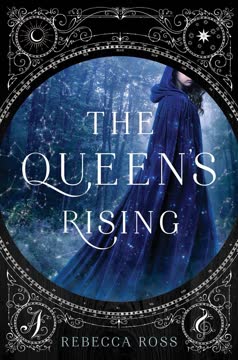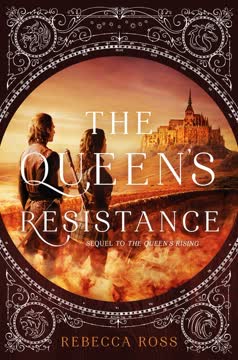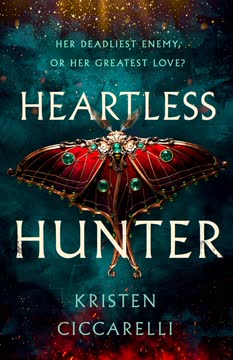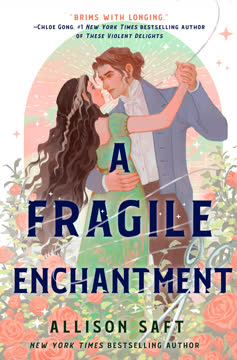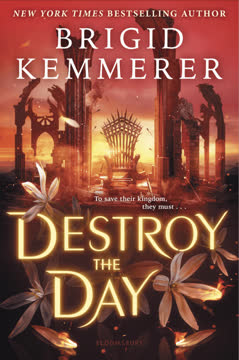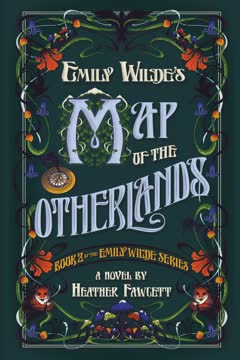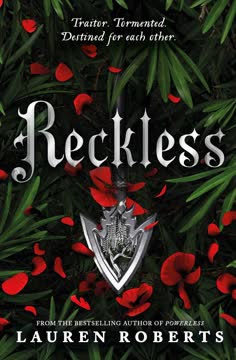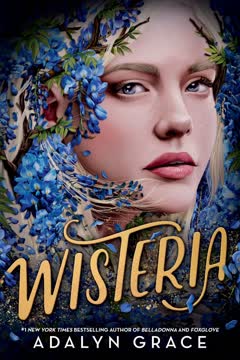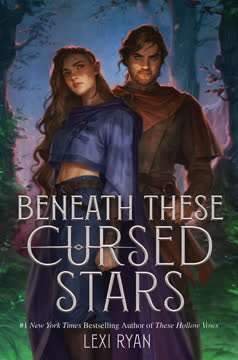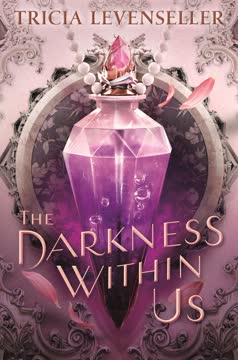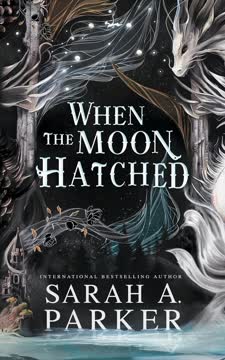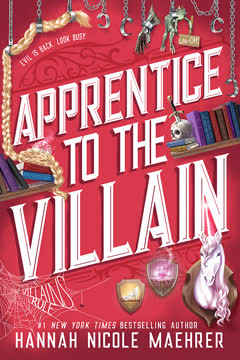Plot Summary
Orphan's Arrival at Magnalia
Brienna, an illegitimate child of mixed Valenian and Maevan heritage, is brought by her grandfather to Magnalia House, a prestigious school for girls to master one of five passions: art, music, dramatics, wit, or knowledge. She is accepted not for her talent, but due to a mysterious plea from her grandfather. Brienna feels the weight of her outsider status, longing for a place to belong and a passion to claim as her own. The grandeur of Magnalia and the expectations of the Dowager and her instructors set the stage for Brienna's journey of self-discovery, as she struggles to find her place among more gifted peers and to uncover the truth of her parentage.
Five Passions, No Mastery
Brienna cycles through each of the five passions, never excelling, always feeling inadequate. She tries art, music, dramatics, and wit, but none fit. Only in knowledge, under the stern but enigmatic Master Cartier, does she find a glimmer of hope, though she is years behind her peers. Her arden-sisters become her found family, supporting her through failures and doubts. The pressure mounts as the summer solstice approaches—the day when each girl must prove her mastery and be chosen by a patron. Brienna's lack of natural talent and her late start in knowledge make her fear she will be left behind, marked as inept and unworthy.
Bonds of Sisterhood
Despite her struggles, Brienna forms deep bonds with her arden-sisters: Oriana, Abree, Sibylle, Ciri, and Merei. Together, they share laughter, secrets, and the anxieties of impending adulthood. Yet, competition simmers beneath the surface, especially with Ciri, who feels threatened by Brienna's growing rapport with Cartier. The girls support each other through portraits, games, and confessions, but the looming solstice and the prospect of separation test their unity. Brienna's longing for acceptance and her fear of failure are tempered by the warmth and loyalty of her chosen family, even as the future threatens to pull them apart.
The Summer Solstice Test
The solstice arrives, bringing patrons to Magnalia to select their impassioned students. Brienna, dressed in blue for knowledge, faces three patrons but falters under pressure, her lack of years in knowledge exposed. Ciri outshines her, and Brienna is left without a patron, her worst fears realized. The night is bittersweet as her sisters are chosen and cloaked, while Brienna must confront her sense of inadequacy. Cartier's subtle support and a fleeting, rule-breaking touch hint at deeper feelings, but Brienna is left in limbo, offered a chance to stay at Magnalia through the summer in hopes of finding her true path.
A Patron's Secret Purpose
Brienna is introduced to Aldéric Jourdain, a mysterious Valenian lawyer who offers to become her patron father. He reveals knowledge of her inherited memories—visions of a Maevan ancestor, Tristan Allenach, who hid the magical Stone of Eventide. Jourdain's true identity as Lord MacQuinn, a rebel lord in exile, is gradually unveiled. He seeks Brienna's help to find the stone and restore the rightful queen to Maevana, overthrowing the tyrant King Lannon. Brienna is swept into a world of political intrigue, secret alliances, and the dangerous legacy of her bloodline, forced to choose between safety and a cause greater than herself.
Inherited Memories Awaken
Brienna's ancestral memories intensify, revealing the tragic history of Maevana's lost queens, the betrayal of the Allenach House, and the hiding of the Stone of Eventide. These visions, triggered by sensory bonds, become the key to locating the stone. Brienna's dual heritage—Valenian and Maevan—places her at the heart of a centuries-old conflict. As she trains in swordplay and deepens her bond with Jourdain's family, especially her new brother Luc, Brienna's sense of identity and purpose crystallizes. The past and present intertwine, and she realizes her role is not just to find the stone, but to heal the wounds of history.
The Stone and the Past
With the help of Luc and the rebel queen Yseult Kavanagh, Brienna deciphers her visions and locates the Stone of Eventide, hidden beneath an ancient oak in the Allenach lands. The recovery of the stone is fraught with peril, as Brienna must evade suspicion, navigate the treacherous politics of Maevana, and confront the legacy of her father, Lord Allenach. The stone's magic stirs, responding to Brienna's presence but awaiting the touch of a true Kavanagh queen. The act of reclaiming the stone becomes a symbol of reclaiming Maevana's lost heritage and Brienna's own agency.
Choosing Sides, Choosing Self
Brienna's true parentage is revealed: she is the illegitimate daughter of Lord Allenach, the very man who betrayed Maevana's queens. Allenach claims her, seeking to use her as a pawn to legitimize his own claim to the throne. Brienna is torn between blood and chosen family, between the manipulations of Allenach and the trust of Jourdain and Yseult. The Queen's Canon, the lost law that ensures only a queen may rule Maevana, is found hidden in Allenach's castle. Brienna must decide where her loyalty lies, ultimately choosing to betray her blood father and side with the rebels, risking everything for a future she believes in.
The Hunt and the Heir
Disguised as a Valenian noblewoman, Brienna infiltrates the Allenach estate during the annual hunt, a rare moment when Maevana's borders are open. She is joined by Cartier—her former master, now revealed as Lord Morgane, another exiled rebel—and her friend Merei. Together, they orchestrate the recovery of the stone and the Canon, while Allenach's sons, especially the dangerous Rian, grow suspicious. Brienna is wounded, and the threat of exposure looms. The convergence of past and present, of hidden identities and open rebellion, sets the stage for the final confrontation.
The Queen's Canon Revealed
With both the Stone of Eventide and the Queen's Canon in hand, Brienna and her allies rally the scattered Houses of Maevana. The Canon's words, carved by the first queen Liadan, declare that only a queen may rule. The people are stirred to action, and the rebel forces gather at Mistwood, the site of past defeat and future hope. Brienna's role as both historian and teacher comes to the fore as she helps spread the Canon's message, inspiring a movement that transcends bloodlines and unites a fractured realm. The stage is set for the queen's return and the reckoning with the past.
Betrayal, Blood, and Battle
The final battle erupts as Yseult, Cartier, Brienna, and their allies confront King Lannon and Allenach's forces. Betrayals are revealed, old wounds reopened, and the cost of rebellion is paid in blood. Brienna faces her father in combat, refusing his offer to join him and instead choosing her own destiny. Allenach is slain by Jourdain, and the field is won at great personal cost. The battle is not just for a crown, but for the soul of Maevana—a struggle between tyranny and justice, between the old order and a new hope.
The Queen's Rising
Yseult Kavanagh is crowned queen, the Stone of Eventide's magic awakening in her touch. The Queen's Canon is restored, and Maevana is reborn as a realm ruled by a woman, as Liadan intended. Brienna, wounded but triumphant, is finally impassioned and cloaked by Cartier, who reveals his own true identity and love for her. The bonds of sisterhood, found family, and chosen purpose are celebrated. The realm begins to heal, and Brienna finds a place where she belongs—not as a pawn, but as a leader, a teacher, and a bridge between past and future.
Homecoming and Healing
In the aftermath, Brienna returns with Jourdain and Luc to the MacQuinn estate, finding peace and a sense of home. The wounds of war and betrayal begin to mend, as old enemies are buried and new alliances forged. Brienna's relationship with Cartier deepens, and she contemplates her future as both a passion and a builder of something new. The scars of the past remain, but hope flourishes in the fields of Corogan, where wildflowers bloom and the promise of a better Maevana takes root.
A New House of Knowledge
Brienna dreams of founding the first House of knowledge in Maevana, a place where girls can learn and passion can flourish. With Cartier at her side, she envisions a future where the lessons of the past guide the next generation. The story closes on a note of hope and renewal, as Brienna claims her place as both historian and teacher, lover and leader, forging a legacy that will outlast the shadows of war and the pain of old betrayals.
Characters
Brienna Colbert (Allenach/MacQuinn)
Brienna is the illegitimate daughter of a Valenian mother and a Maevan father, raised in obscurity and haunted by questions of identity. Her journey is one of self-discovery, as she struggles to find her passion and place in a world that values mastery and bloodlines. Brienna's psychological arc is defined by her longing for acceptance, her resilience in the face of failure, and her courage to choose her own path. Her inherited memories connect her to the traumas and hopes of the past, while her relationships—with her arden-sisters, with Jourdain, with Cartier—shape her sense of self. Brienna's ultimate choice to side with the rebels and claim her own destiny marks her transformation from pawn to agent, from orphan to leader.
Master Cartier Évariste (Aodhan Morgane/Theo d'Aramitz)
Cartier is Brienna's stern but compassionate master of knowledge, later revealed as the exiled Lord Morgane. His dual identity as both Valenian passion and Maevan lord mirrors Brienna's own divided heritage. Cartier's psychological complexity lies in his struggle between duty and desire, secrecy and vulnerability. His relationship with Brienna evolves from teacher-student to equals and lovers, marked by mutual respect, intellectual kinship, and deep emotional connection. Cartier's journey is one of reconciliation with his past, acceptance of his true self, and the courage to fight for a future shaped by justice and love.
Aldéric Jourdain (Davin MacQuinn)
Jourdain, Brienna's patron and adoptive father, is the exiled Lord MacQuinn, haunted by loss and driven by a sense of justice. His psychological profile is marked by grief, guilt, and a fierce protectiveness toward those he loves. Jourdain's relationship with Brienna is both paternal and collaborative, as he guides her through the dangers of rebellion and the complexities of identity. His willingness to trust Brienna, even when her bloodline is revealed, speaks to his capacity for forgiveness and growth. Jourdain's arc is one of redemption, as he confronts the ghosts of betrayal and finds healing in chosen family.
Brendan Allenach
Allenach is Brienna's biological father and the story's most complex antagonist. A man of ambition, cunning, and deep wounds, he embodies the dangers of unchecked power and the legacy of betrayal. Allenach's psychological makeup is defined by his need for control, his inability to love without possession, and his ultimate downfall at the hands of those he wronged. His relationship with Brienna is fraught with manipulation, longing, and a twisted sense of pride. Allenach's arc is a cautionary tale of the costs of ambition and the pain of being unable to change.
Yseult Laurent (Isolde Kavanagh)
Yseult is the last surviving Kavanagh daughter, raised in exile and burdened by the expectations of her lineage. Her psychological journey is one of overcoming self-doubt, embracing leadership, and learning to wield power with compassion. Yseult's relationship with Brienna is one of sisterhood and mutual support, as they both navigate the challenges of identity and destiny. Her rise to the throne marks the restoration of Maevana's true legacy and the healing of generational trauma.
Luc Jourdain
Luc, Jourdain's son and Brienna's adoptive brother, is a passion of music and a source of warmth and humor. His psychological role is that of the supportive sibling, offering Brienna both camaraderie and challenge. Luc's journey is one of finding his own place in the rebellion, balancing loyalty to family with the demands of a changing world. His optimism and adaptability make him a vital link between the old and new orders.
Merei Labelle
Merei, Brienna's closest arden-sister, is a passion of music whose loyalty and creativity anchor Brienna through trials and triumphs. Her psychological profile is marked by empathy, resilience, and a quiet strength. Merei's role in the rebellion, her willingness to risk herself for Brienna, and her dreams of building something new reflect the story's themes of chosen family and the power of art to heal and inspire.
Rian Allenach
Rian, Allenach's eldest son, is a foil to Brienna—ambitious, suspicious, and ultimately destructive. His psychological arc is one of jealousy, fear, and the inability to break free from his father's shadow. Rian's actions, especially his violence toward Brienna, highlight the dangers of inherited hatred and the necessity of forging one's own path.
Ciri Montagne
Ciri, Brienna's fellow arden of knowledge, represents the pressures of competition and the pain of feeling overlooked. Her psychological journey is one of grappling with envy, learning to accept her own worth, and ultimately finding her place outside of rivalry. Ciri's relationship with Brienna is a study in the complexities of female friendship and the challenges of self-acceptance.
The Dowager of Magnalia
The Dowager is the stern, enigmatic head of Magnalia House, whose decisions shape the destinies of her students. Her psychological role is that of the wise guardian, balancing tradition with compassion. The Dowager's willingness to break rules for Brienna, her secret knowledge of the past, and her support of the rebellion reveal a depth of wisdom and a commitment to justice that transcends personal interest.
Plot Devices
Dual Heritage and Inherited Memory
The narrative structure hinges on Brienna's dual heritage—Valenian and Maevan—and her inherited memories from her ancestor, Tristan Allenach. These visions serve as both plot device and metaphor, guiding Brienna to the Stone of Eventide and illuminating the traumas and hopes of Maevana's past. The interplay of memory and action blurs the boundaries between history and agency, allowing Brienna to heal old wounds and forge a new path. Foreshadowing is woven through these memories, as Brienna's visions reveal both the dangers and the possibilities of reclaiming lost power.
The Five Passions and the Cloak
The system of passions—art, music, dramatics, wit, knowledge—serves as both worldbuilding and psychological framework. The journey from arden to impassioned, marked by the granting of a cloak, symbolizes the quest for selfhood and acceptance. The cloak, especially the constellation chosen by the master, is a recurring motif of identity, mentorship, and the bonds that transcend blood. The solstice and the rituals of impassionment provide structure and stakes, while also highlighting the limitations and possibilities of tradition.
The Queen's Canon and the Stone of Eventide
The Queen's Canon (the lost law) and the Stone of Eventide (the lost magic) are central MacGuffins, driving the plot and embodying the themes of legitimacy, power, and restoration. Their recovery is both literal and symbolic—the reclamation of a lost legacy and the assertion of a new order. The Canon's words, carved by Liadan, serve as both prophecy and call to action, while the stone's magic is a test of worthiness and a catalyst for healing.
Chosen Family and Found Sisterhood
The bonds between Brienna and her arden-sisters, her patron father, and her mentor-lover Cartier are the emotional core of the story. These relationships provide both support and challenge, forcing Brienna to confront her fears, question her loyalties, and ultimately choose her own path. The motif of chosen family—contrasted with the dangers of blood ties—underscores the story's message that identity is forged as much by love and choice as by heritage.
Foreshadowing and Narrative Echoes
The story is structured around echoes—of past betrayals, lost queens, and failed rebellions. The use of inherited memory, the repetition of rituals (the solstice, the hunt, the battle at Mistwood), and the mirroring of relationships (teacher-student, father-daughter, sister-sister) create a sense of fate and inevitability. Yet, the narrative also subverts these echoes, allowing Brienna and her allies to break the cycle and claim a new future. The interplay of prophecy and agency, of foreshadowing and surprise, keeps the reader engaged and invested in the outcome.
Analysis
Rebecca Ross's The Queen's Rising is a lush, emotionally resonant coming-of-age fantasy that explores the complexities of identity, belonging, and the power of chosen family. At its heart, the novel is about a young woman's struggle to define herself in a world that values mastery, bloodlines, and tradition. Brienna's journey—from orphaned outsider to impassioned leader—mirrors the broader struggle of Maevana to reclaim its lost legacy and heal the wounds of history. The book interrogates the dangers of inherited trauma and the seductive pull of power, while celebrating the redemptive possibilities of love, friendship, and self-determination. Through its intricate worldbuilding, memorable characters, and deft use of plot devices like inherited memory and the five passions, the novel offers a modern meditation on the importance of agency, the necessity of confronting the past, and the hope that comes from forging one's own path. In a world still grappling with questions of legitimacy, gender, and the meaning of home, The Queen's Rising invites readers to believe in the possibility of transformation—both personal and collective—and to find strength in the bonds we choose, not just those we inherit.
Last updated:
Review Summary
The Queen's Rising receives mixed reviews. Some readers praise the beautiful writing, engaging world-building, and strong female friendships. They appreciate the slow-burn romance and political intrigue. Others find the pacing too slow and the plot predictable. Critics note the controversial teacher-student romance and lack of character development. Many consider it an average YA fantasy with potential but lacking originality. Despite divided opinions, some readers highly recommend it, while others feel disappointed by its failure to stand out in the genre.
